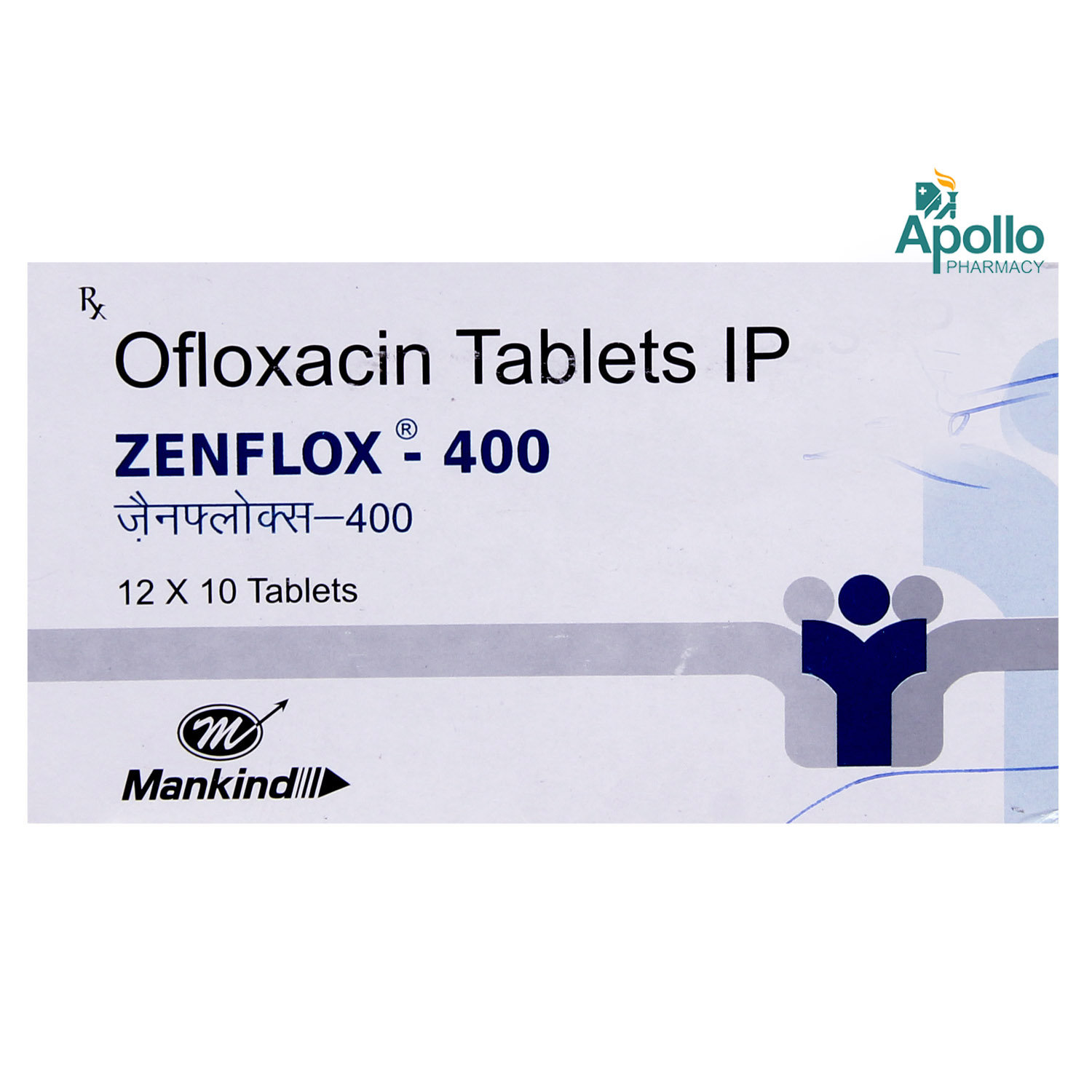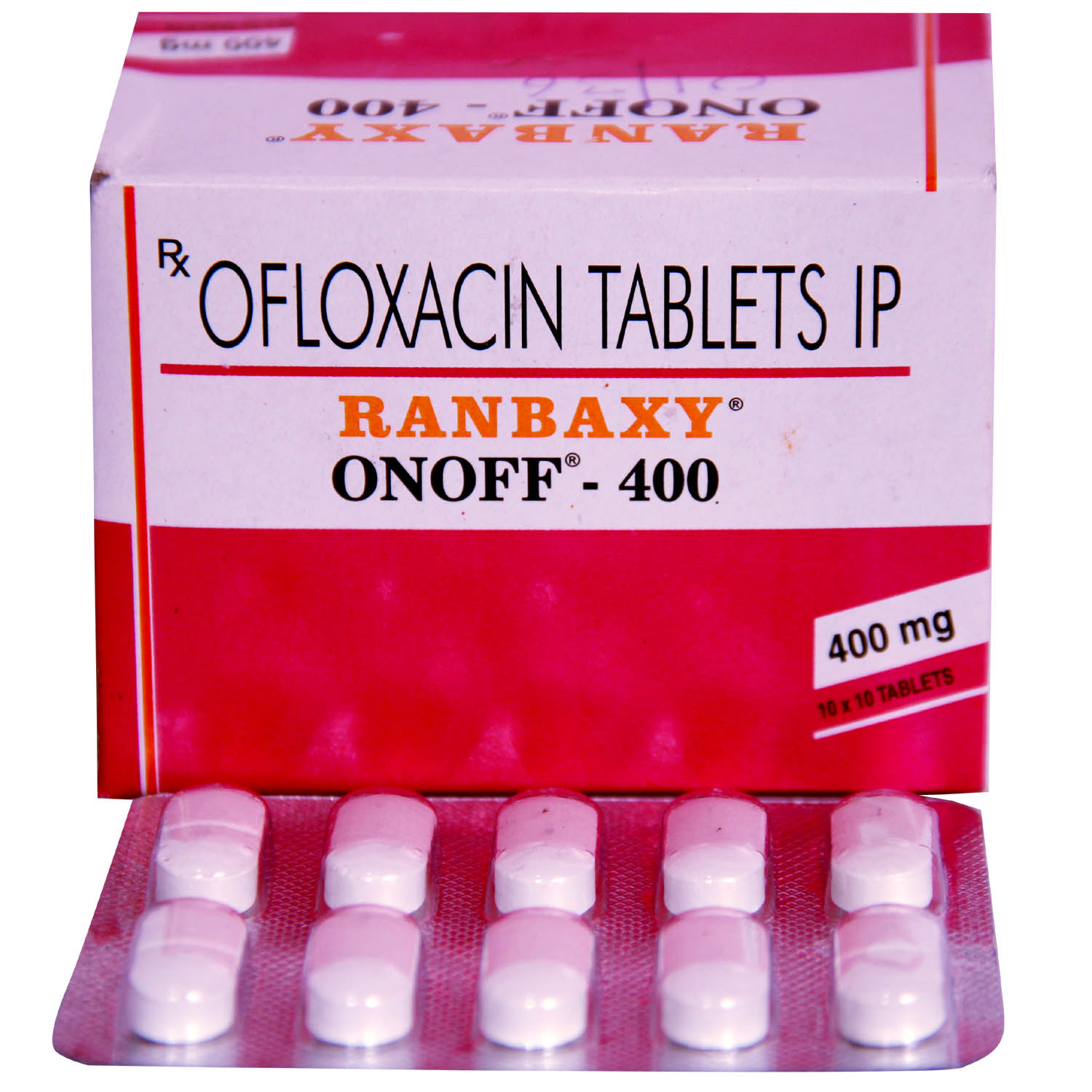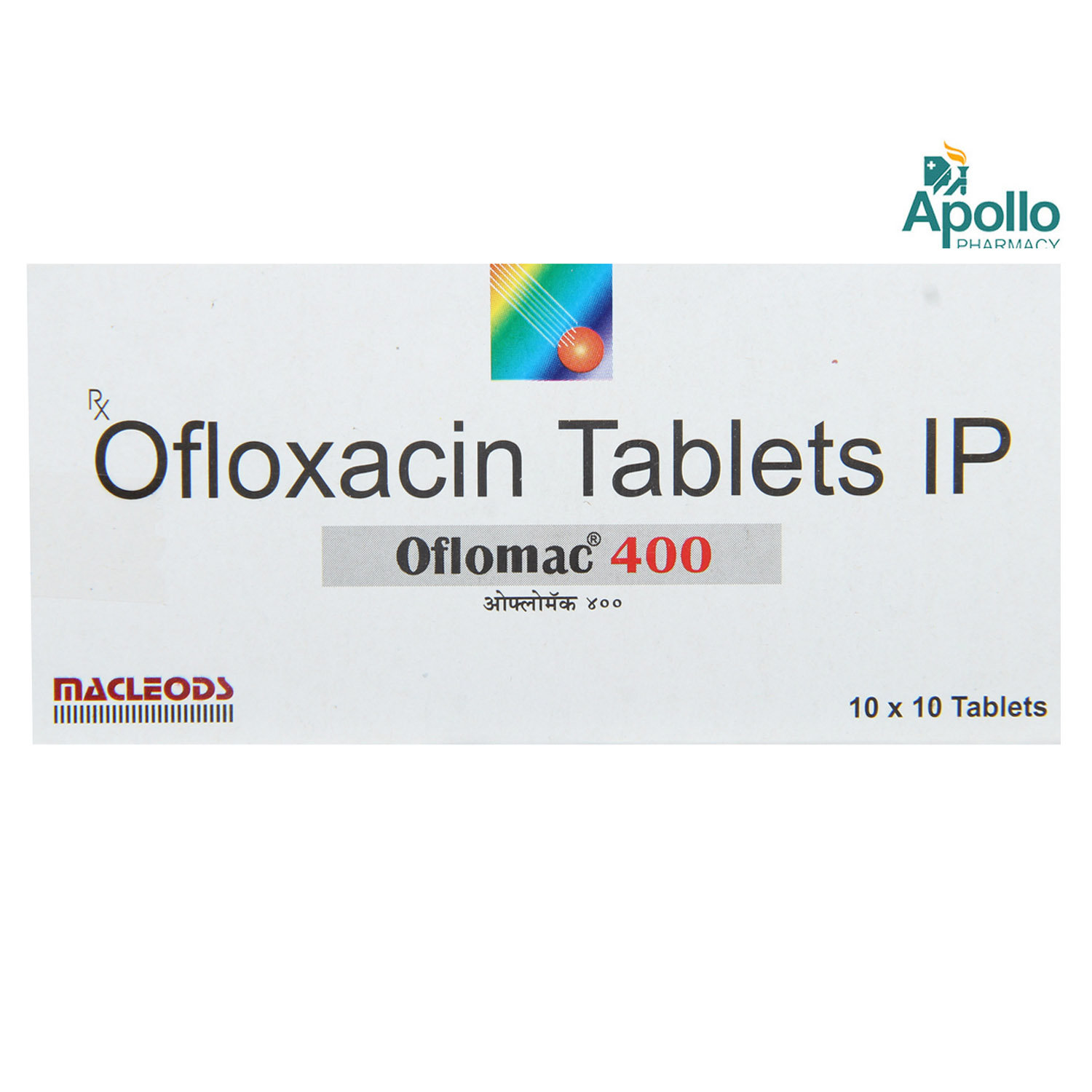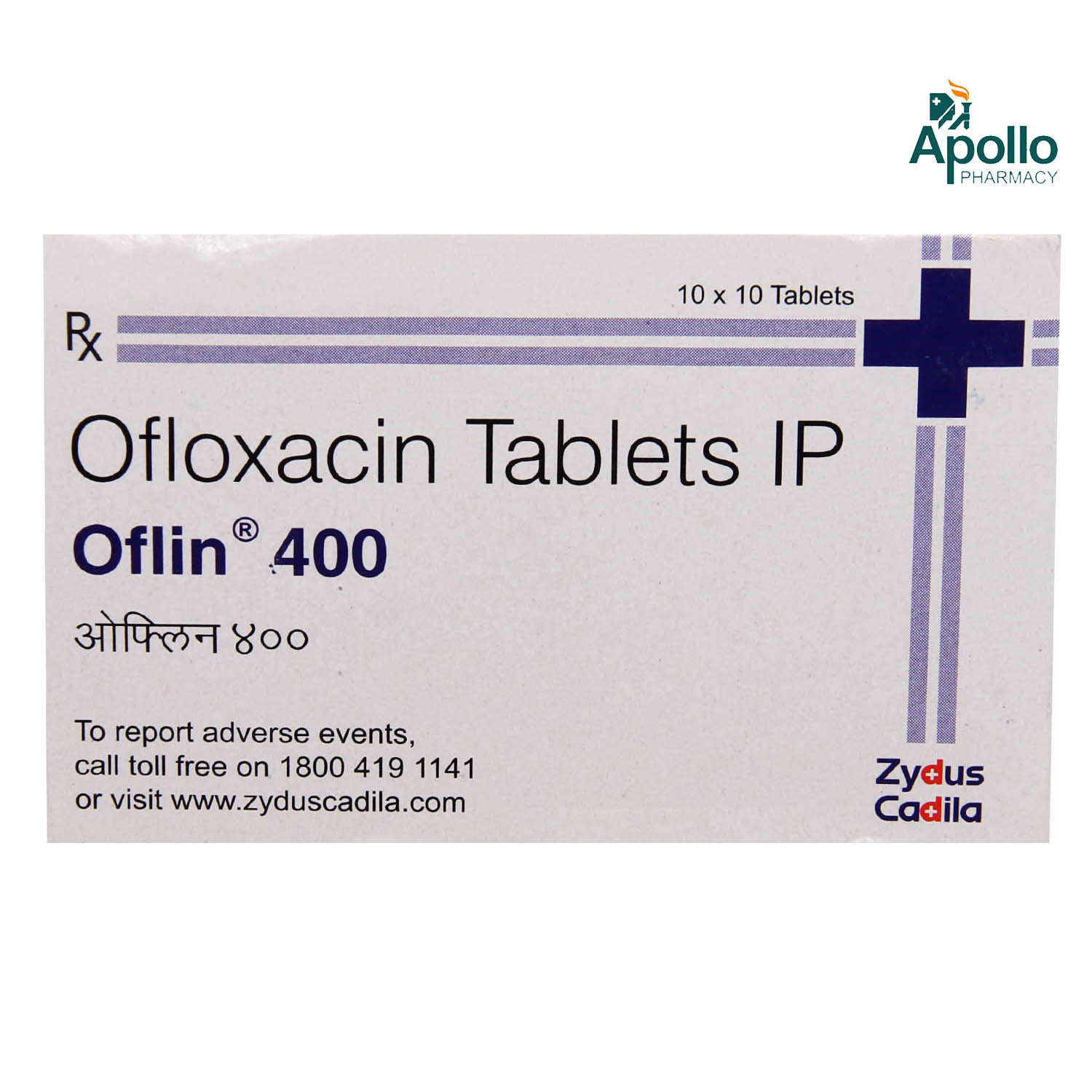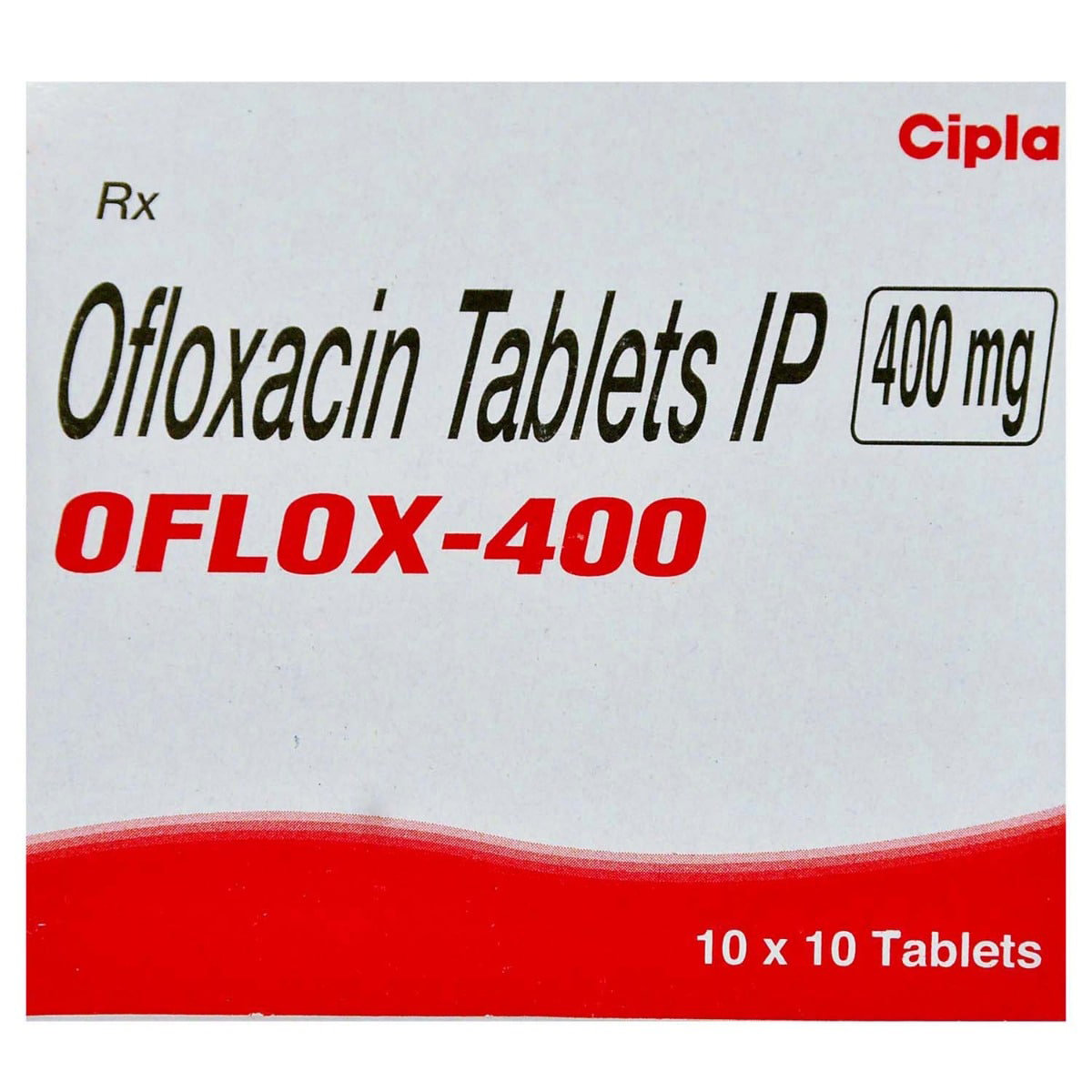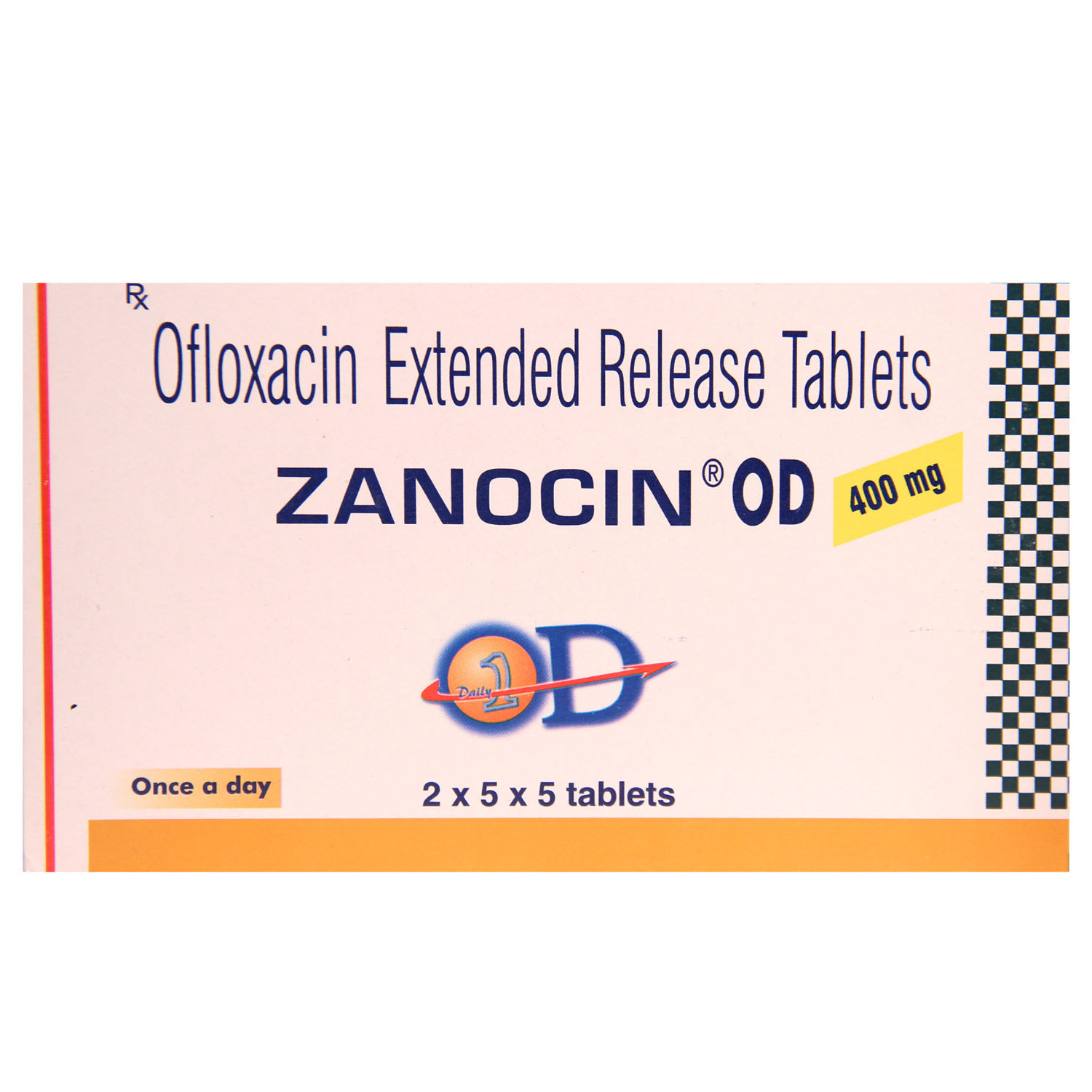Tarivid 400 mg Tablet 5's


MRP ₹297.14
(Inclusive of all Taxes)
₹44.6 Cashback (15%)
Provide Delivery Location
Online payment accepted
 Prescription drug
Prescription drugWhats That
Composition :
Manufacturer/Marketer :
Consume Type :
Return Policy :
Expires on or after :
About Tarivid 400 mg Tablet
Tarivid 400 mg Tablet contains a class of antibiotics known as fluoroquinolones, primarily used to treat infections caused by bacteria including pneumonia, gonorrhoea (a sexually transmitted disease), typhoid fever, infectious diarrhoea, and infections of the skin, eye/ear, bone, joint, abdomen, and prostate (male reproductive gland). A bacterial infection is a condition in which bacteria grow in the body and cause infection. It can target any body part and multiple very quickly.
Tarivid 400 mg Tablet contains antibacterial Ofloxacin, which helps in treating and preventing a wide range of bacterial infections. It is bactericidal and works by killing bacteria that cause infections. It inhibits the repairing of bacterial cells and kills the bacteria, thereby preventing the further spread of the infection. Tarivid 400 mg Tablet is a broad-spectrum antibiotic against most Gram-negative bacteria, many Gram-positive bacteria and some anaerobes bacteria (that live without oxygen).
Tarivid 400 mg Tablet should be taken in the dose and duration as advised by your doctor. It is advised to take with food and be taken at a fixed time to achieve maximum effect. Do not take Tarivid 400 mg Tablet with dairy products as it may lower its efficacy. You may experience sleep problems, headache, dizziness, nausea, vomiting, diarrhoea, itching, external genital itching in women, vaginal inflammation (vaginitis) and taste changes in some cases. Most of these side effects of Tarivid 400 mg Tablet do not require medical attention and gradually resolve over time. However, if the side effects are persistent, reach out to your doctor. If you experience any allergic reaction symptoms such as rashes, itching, swelling, or shortness of breath, immediately contact the doctor.
Inform your doctor if you have any lung disease, muscle weakness (myasthenia gravis), sleeping disorder or difficulty sleeping (sleep apnoea), severe liver disease, or problem with alcohol or other prescription recreational drugs. Inform your doctor if you are planning to get pregnant, are pregnant, or breastfeeding. Use of Tarivid 400 mg Tablet is associated with an increased risk of tendinitis and tendon (tough tissue that connects muscle to bone) rupture in all ages. People taking Tarivid 400 mg Tablet who are over 60 years are at high risk, especially those who are taking any anti-allergic medicines like corticosteroid drugs. Tarivid 400 mg Tablet is contraindicated in people with kidney/heart diseases, and for those who have had lung transplant should its use is not recommended.
Uses of Tarivid 400 mg Tablet
Directions for Use
Medicinal Benefits
Tarivid 400 mg Tablet contains the antibiotic Ofloxacin, which helps in treating and preventing a wide range of bacterial infections caused by most Gram-negative bacteria, many Gram-positive bacteria, and some anaerobes bacteria (that live without oxygen). It is bactericidal in nature and works by killing bacteria that cause infections by prevents the formation of the cell wall required for living. It also inhibits the repair of bacterial cells. Altogether it kills the bacteria. Tarivid 400 mg Tablet has the advantage of good penetration in most deep tissues and body fluid. Hence, it is also suitable for the treatment of deep tissue and bone bacterial infections.
Storage
- Drink water or other clear fluids.
- To prevent worsening of pain, limit intake of tea, coffee, or alcohol.
- Include bland foods like rice, toast, crackers, and rice in your diet.
- Avoid lying down immediately after eating as it may cause indigestion or heartburn.
- Avoid acidic and spicy food as it may cause indigestion.
- Chest pain may last for a while and needs immediate medical attention as it is a significant health issue to be attended to.
- Take rest and refrain from doing physical activity for a while, and restart after a few days.
- Try applying an ice pack to the strained area for at least 20 minutes thrice a day. Ice pack thus helps reduce inflammation.
- Sit upright and maintain proper posture if there is persistent chest pain. • Use extra pillows to elevate your position and prop your chest up while sleeping.
- Inform your doctor about dry mouth symptoms. They may adjust your medication regimen or prescribe additional medications to manage symptoms.
- Drink plenty of water throughout the day to help keep your mouth moist and alleviate dry mouth symptoms.
- Chew sugar-free gum or candies to increase saliva production and keep your mouth moisturized.
- Use saliva substitutes, such as mouthwashes or sprays, only if your doctor advises them to help moisturize your mouth and alleviate dry mouth symptoms.
- Avoid consuming smoking, alcohol, spicy or acidic foods, and other irritants that may aggravate dry mouth symptoms.
- Schedule regular dental check-ups to keep track of your oral health and handle any dry mouth issues as they arise.
- Regularly brush and floss your teeth.
- Rinse your mouth with water and baking soda a solution to neutralize acid in the mouth. This makes your food taste as it should.
- Drink plenty of water or non-caffeinated drinks to prevent dry mouth which may lead to altered taste.
- Try ginger, peppermint, fruit or green teas, lemonade, ginger ale or fruit juice to help mask unpleasant tastes.
- Try sucking on sugar-free ice pops or ice cubes to prevent dry mouth.
- Rest well; get enough sleep.
- Eat a balanced diet and drink enough water.
- Manage stress with yoga and meditation.
- Limit alcohol and caffeine.
- Physical activities like walking or jogging might help boost energy and make you feel less tired.
- Wear cotton underwear and loose pants to facilitate better airflow.
- Try meditation and yoga to reduce stress and improve balance hormones.
- Eat foods like yogurt or kefir to support vaginal health.
- Gently clean the genital area with soap and lukewarm water.
- Avoid fragrant soap, bubble baths, and douches; these can also irritate.
- Tell your doctor about any medications or supplements you’re taking, as they may affect vaginal discharge treatments.
Drug Warnings
Do not take Tarivid 400 mg Tablet if you are allergic or have had a severe reaction to ofloxacin or any other quinolone or fluoroquinolone antibiotics such as delafloxacin, gemifloxacin, levofloxacin, moxifloxacin, and ciprofloxacin. Taking Tarivid 400 mg Tablet may increase the chances of developing tendinitis (swelling of a fibrous tissue that connects a bone to a muscle) or have a tendon rupture (tearing of a fibrous tissue that connects a bone to a muscle). Inform your doctor if you have or have ever had a kidney, heart, or lung transplant, kidney disease, a joint or tendon disorder such as rheumatoid arthritis (an autoimmune disorder of joints causing pain, swelling, and loss of function), seizures (fits), epilepsy or if you participate in regular physical activity. Taking Tarivid 400 mg Tablet may worsen muscle weakness in people with myasthenia gravis (a nervous system disorder that causes muscle weakness) and cause severe difficulty breathing or death. Dairy products should be avoided along with Tarivid 400 mg Tablet. And also, exposure to sunlight should be avoided while taking Tarivid 400 mg Tablet as it may cause increased phototoxicity or photosensitivity. Patients with epilepsy and irregular heartbeat (QT prolongation) should tell their doctor before taking Tarivid 400 mg Tablet.
Drug-Drug Interactions
Drug-Drug Interactions
Login/Sign Up
Using Mesoridazine together with Tarivid 400 mg Tablet can increase the risk of an irregular heart rhythm that may be serious.
How to manage the interaction:
Taking Mesoridazine with Tarivid 400 mg Tablet is not recommended, please consult your doctor before taking it. You should seek immediate medical attention if you develop sudden dizziness, lightheadedness, fainting, shortness of breath, or heart palpitations. Do not stop using any medications without talking to a doctor.
Coadministration of Tarivid 400 mg Tablet with Quinidine can increase the risk or severity of irregular heart rhythms.
How to manage the interaction:
Taking Tarivid 400 mg Tablet with Quinidine together is generally avoided as it can result in an interaction, it can be taken if your doctor has advised it. However, if you experience sudden dizziness, lightheadedness, fainting, shortness of breath, chest pain or tightness, rapid heartbeat, or memory loss, contact a doctor immediately. Do not discontinue any medications without consulting a doctor.
Coadministration of Tarivid 400 mg Tablet with Pimozide can increase the risk or severity of irregular heart rhythms.
How to manage the interaction:
Taking Tarivid 400 mg Tablet with Pimozide together can result in an interaction, it can be taken if your doctor has advised it. However, if you experience sudden dizziness, lightheadedness, fainting, shortness of breath, chest pain or tightness, rapid heartbeat, or memory loss, contact a doctor immediately. Do not discontinue any medications without consulting a doctor.
Coadministration of Tarivid 400 mg Tablet with Saquinavir can increase the risk or severity of irregular heart rhythms.
How to manage the interaction:
Taking Tarivid 400 mg Tablet with Saquinavir together is generally avoided as it can result in an interaction, it can be taken if your doctor has advised it. However, if you experience sudden dizziness, lightheadedness, fainting, shortness of breath, chest pain or tightness, rapid heartbeat, or memory loss, contact a doctor immediately. Do not discontinue any medications without consulting a doctor.
Using bepridil together with Tarivid 400 mg Tablet drugs can increase the risk of an irregular heart rhythm that may be serious.
How to manage the interaction:
Taking Tarivid 400 mg Tablet with Bepridil can cause an interaction, please consult your doctor before taking it. You should seek immediate medical attention if you develop sudden dizziness, lightheadedness, fainting, or fast or pounding heartbeats. Do not stop using any medications without consulting a doctor.
Coadministration of Tarivid 400 mg Tablet with Dronedarone can increase the risk or severity of irregular heart rhythm.
How to manage the interaction:
Taking Tarivid 400 mg Tablet with Dronedarone together can result in an interaction, it can be taken if your doctor has advised it. However, if you experience sudden dizziness, lightheadedness, fainting, shortness of breath, chest pain or tightness, rapid heartbeat, or memory loss, contact a doctor immediately. Do not discontinue any medications without consulting a doctor.
Using halofantrine together with Tarivid 400 mg Tablet can increase the risk of an irregular heart rhythm that may be serious.
How to manage the interaction:
Taking Tarivid 400 mg Tablet with Halofantrine can cause an interaction, please consult your doctor before taking it. You should seek immediate medical attention if you develop sudden dizziness, lightheadedness, fainting, shortness of breath, or heart palpitations. Do not stop using any medications without talking to a doctor.
The combination of Amiodarone and Tarivid 400 mg Tablet may significantly increase the risk of an abnormal heart rhythm.
How to manage the interaction:
Although Amiodarone and Tarivid 400 mg Tablet interact, it can be taken if prescribed by a doctor. If you get dizziness, lightheadedness, fainting, or fast or racing heartbeats, consult a doctor. Do not stop taking any medications without consulting a doctor.
Coadministration of Tarivid 400 mg Tablet with Thioridazine can increase the risk or severity of irregular heart rhythms.
How to manage the interaction:
Taking Tarivid 400 mg Tablet with Thioridazine together is generally avoided as it can result in an interaction, it can be taken if your doctor has advised it. However, if you experience sudden dizziness, lightheadedness, fainting, shortness of breath, chest pain or tightness, rapid heartbeat, or memory loss, contact a doctor immediately. Do not discontinue any medications without consulting a doctor.
Coadministration of Tarivid 400 mg Tablet with Sotalol can increase the risk or severity of irregular heart rhythms.
How to manage the interaction:
Taking Tarivid 400 mg Tablet with Sotalol together is generally avoided as it can result in an interaction, it can be taken if a doctor has advised it. If you experience sudden dizziness, lightheadedness, fainting, shortness of breath, chest pain or tightness, rapid heartbeat, or memory loss, contact a doctor. Do not discontinue any medications without consulting a doctor.
Drug-Food Interactions
Drug-Food Interactions
Login/Sign Up
Avocado, Beetroot, Cereals, Cheese, Chicken, Black Beans, Eggs, Clams, Chickpea, Whole Grains, Shellfish, Spinach, Salmon, Red Meat, Oysters, Potatoes, Kidney Beans, Mackerel, Milk, Kale, Tuna, Yogurt, Liver, Low-Fat Milk, Trout, Fortified Breakfast Cereal, Fish, Beef
How to manage the interaction:
Tarivid 400 mg Tablet and a multivitamin with minerals should not be taken together orally. Products containing magnesium, aluminium, calcium, iron, or other minerals may decrease the effects of Tarivid 400 mg Tablet. If at all possible, avoid taking multivitamins containing minerals while receiving Tarivid 400 mg Tablet treatment. Do not discontinue any medications without first consulting your doctor.
Diet & Lifestyle Advise
- Do not drink or eat a lot of caffeine-containing products such as coffee, tea, energy drinks, cola, or chocolate. Tarivid 400 mg Tablet may increase nervousness, sleeplessness, and anxiety caused by caffeine.
- Probiotics should be taken after taking the full course of Tarivid 400 mg Tablet to restore some healthy bacteria in the intestines that may have been killed. Taking probiotics after antibiotic treatment can reduce the risk of antibiotic-associated diarrhea. Certain fermented foods like yogurt, cheese, sauerkraut, kombucha, and kimchi can help restore the intestine's good bacteria.
- Include more fiber-enriched food in your diet, as it can be easily digested by your gut bacteria, which helps stimulate their growth. Thus, fiber-rich foods may help restore healthy gut bacteria after a course of antibiotics. Whole grains like whole-grain bread, brown rice should be included in your diet. Make sure you drink plenty of water or other fluids every day while you are taking Tarivid 400 mg Tablet.
- Avoid alcoholic beverages with Tarivid 400 mg Tablet as it can make you dehydrated and may affect your sleep. This can make it harder for your body to aid the Tarivid 400 mg Tablet in fighting off infections.
Side Effects of Tarivid 400 mg Tablet
- Tendon rupture
- Arthralgia (joint pain)
- Sleep problems
- Headache
- Dizziness
- Nausea
- Vomiting
- Diarrhoea
- Itching
- External genital itching in women
- Vaginal inflammation (vaginitis)
- Taste changes
Habit Forming
Therapeutic Class
All Substitutes & Brand Comparisons
RX
Out of StockANOFLOX 400MG TABLET
An Pharmaceuticals Pvt Ltd
₹77
(₹6.93 per unit)
87% CHEAPERRX
Out of StockAmoflox 400mg Tablet
Pfizer Ltd
₹77.3
(₹6.96 per unit)
86% CHEAPERRX
Out of StockAxiflo 400mg Tablet
₹92
(₹8.28 per unit)
84% CHEAPER
Product Substitutes
Drug-Diseases Interactions
Drug-Diseases Interactions
Login/Sign Up
FAQs
If you miss a dose of Tarivid 400 mg Tablet, take the missed dose as soon as you remember it. However, if it's almost time for the next dose, do not take a double dose to make up for a missed one.
No, Tarivid 400 mg Tablet should not be taken along with dairy products as it might affect the absorption and efficacy of Tarivid 400 mg Tablet. However, you can take it with a meal that includes these foods or drinks.
Tarivid 400 mg Tablet makes your skin sensitive to sunlight known as photosensitivity. So, prolonged exposure to sunlight or ultraviolet light should be avoided. In case of emergency, you should always wear sunscreen before going out.
Yes, after taking Tarivid 400 mg Tablet, you may have diarrhea. Tarivid 400 mg Tablet is an antibiotic that kills or prevents bacterial growth, so in case some good intestinal bacteria which aid in digestion might also get killed. So, drink plenty of fluids and take probiotics to prevent excessive loss of fluids from the body (dehydration).
No, Tarivid 400 mg Tablet should be taken in the dose and duration as advised by the doctor. If you take it in more than the recommended dose, it might cause unpleasant side effects. If you think your symptoms are not improving, please consult your doctor
You are recommended to take Tarivid 400 mg Tablet either 2 hours before or 2 hours after taking an antacid, multivitamin, or other product that has calcium/magnesium/aluminium/iron/zinc, antiulcer agent (sucralfate) or anti-HIV drug (didanosine).
Drug-Drug Interactions Checker List
- ASPIRIN
- WARFARIN
- CLOZAPINE
- OLANZAPINE
- CHLORPROPAMIDE
- GLIMEPIRIDE
- GLIPIZIDE
- GLYBURIDE
- METFORMIN
- TOLAZAMIDE
- TOLBUTAMIDE
- AMIODARONE
- DISOPYRAMIDE
- PROCAINAMIDE
- QUINIDINE
- IBUPROFEN
- NAPROXEN
- SUCRALFATE
- DIDANOSINE
Special Advise
Tendon damage (especially to the Achilles tendon) can occur within 48 hours of starting Tarivid 400 mg Tablet treatment. The onset of symptoms and signs of the side effects may be delayed several months after stopping treatment. At the first sign of tendinitis (like painful swelling, inflammation), immediately stop taking Tarivid 400 mg Tablet. The affected limbs should be appropriately treated (e.g., immobilisation). Corticosteroids medicines (like anti-inflammatory drugs including cortisone, prednisone, prednisolone, methylprednisolone, dexamethasone, betamethasone, hydrocortisone should not be used if signs of tendon rupture occur.
Disease/Condition Glossary
A bacterial infection is a condition in which harmful bacteria enter, multiply, and infect our bodies. It can target any body part and multiple very quickly. When you get infected with bacteria, you can experience generalized symptoms, like fevers, chills, and fatigue. Bacteria are of various forms comprising commonly of spherical, rod, and spiral-shaped. Bacterial infections vary from minor illnesses like sore throat and ear infections to severe brain infections like meningitis and encephalitis. Few harmful bacteria that cause infections include Streptococcus, Staphylococcus, and E. coli. Anyone can become infected with a bacterial infection. People with weak immune systems or taking immunosuppressive medicine can make them more prone to bacterial infection.

Have a query?
Buy best Infections & Infestation products by
Cipla Ltd
Macleods Pharmaceuticals Ltd
Alkem Laboratories Ltd
Lupin Ltd
Abbott India Ltd
Sun Pharmaceutical Industries Ltd
Mankind Pharma Pvt Ltd
Micro Labs Ltd
Aristo Pharmaceuticals Pvt Ltd
FDC Ltd
Intas Pharmaceuticals Ltd
Glenmark Pharmaceuticals Ltd
Ipca Laboratories Ltd
Torrent Pharmaceuticals Ltd
Zydus Healthcare Ltd
Biochem Pharmaceutical Industries Ltd
Zuventus Healthcare Ltd
United Biotech Pvt Ltd
Hetero Drugs Ltd
Emcure Pharmaceuticals Ltd
Alembic Pharmaceuticals Ltd
Indoco Remedies Ltd
Fusion Health Care Pvt Ltd
Dr Reddy's Laboratories Ltd
Leeford Healthcare Ltd
Cadila Healthcare Ltd
Wockhardt Ltd
Zydus Cadila
GlaxoSmithKline Pharmaceuticals Ltd
Morepen Laboratories Ltd
Blue Cross Laboratories Pvt Ltd
Cadila Pharmaceuticals Ltd
Converge Biotech Pvt Ltd
Elder Pharmaceuticals Ltd
Hetero Healthcare Pvt Ltd
Pfizer Ltd
AAA Pharma Trade Pvt Ltd
Gufic Bioscience Ltd
Mylan Pharmaceuticals Pvt Ltd
Corona Remedies Pvt Ltd
Wallace Pharmaceuticals Pvt Ltd
Apex Laboratories Pvt Ltd
Medishri Healthcare Pvt Ltd
Akumentis Healthcare Ltd
Alniche Life Sciences Pvt Ltd
Hegde & Hegde Pharmaceutica Llp
Veritaz Healthcare Ltd
Ranbaxy Laboratories Ltd
Koye Pharmaceuticals Pvt Ltd
Shreya Life Sciences Pvt Ltd
Overseas Health Care Pvt Ltd
Biocon Ltd
Indchemie Health Specialities Pvt Ltd
Medley Pharmaceuticals Ltd
Brinton Pharmaceuticals Ltd
J B Chemicals & Pharmaceuticals Ltd
Unifaith Biotech Pvt Ltd
Ajanta Pharma Ltd
Biochemix Health Care Pvt Ltd
Natco Pharma Ltd
Samarth Life Sciences Pvt Ltd
Unichem International
Laborate Pharmaceuticals India Ltd
Unipark Biotech Pvt Ltd
Zymes Bioscience Pvt Ltd
Indiabulls Pharmaceuticals Pvt Ltd
Neon Laboratories Ltd
Vasu Organics Pvt Ltd
DR Johns Lab Pharma Pvt Ltd
East West Pharma India Pvt Ltd
La Renon Healthcare Pvt Ltd
Medgen Drugs And Laboratories Pvt Ltd
Novartis India Ltd
Canixa Life Sciences Pvt Ltd
Icarus Health Care Pvt Ltd
Lincoln Pharmaceuticals Ltd
Celon Laboratories Pvt Ltd
Concept Pharmaceuticals Ltd
Klm Laboratories Pvt Ltd
Nicholas Piramal India Ltd
Systopic Laboratories Pvt Ltd
Yuventis Pharmaceuticals
Capital Pharma
German Remedies Ltd
Pristine Pearl Pharma Pvt Ltd
Unison Pharmaceuticals Pvt Ltd
Aurz Pharmaceutical Pvt Ltd
Clover Health Care Pharma
Kepler Healthcare Pvt Ltd
Allites Life Sciences Pvt Ltd
Auspharma Pvt Ltd
Intra Life Pvt Ltd
Jolly Healthcare
Linux Laboratories Pvt Ltd
Ozone Pharmaceuticals Ltd
Cachet Pharmaceuticals Pvt Ltd
Comed Chemicals Ltd
Delcure Life Sciences Ltd
Fresenius Kabi India Pvt Ltd
Khandelwal Laboratories Pvt Ltd
Alcohol
Unsafe
Alcohol is not known to cause any unpleasant side effects if taken along with Tarivid 400 mg Tablet. But intake of alcohol with Tarivid 400 mg Tablet may damage your liver. So intake of Tarivid 400 mg Tablet should be avoided with Tarivid 400 mg Tablet.
Pregnancy
Unsafe
Tarivid 400 mg Tablet is a pregnancy Category C medicine. It is not known whether Tarivid 400 mg Tablet will affect pregnant women or fetus or not. Hence, the intake of Tarivid 400 mg Tablet should be avoided if you are pregnant or planning to become pregnant as it may harm the baby.
Breast Feeding
Caution
Tarivid 400 mg Tablet is excreted in human milk. But the amount of Tarivid 400 mg Tablet absorbed by the nursing infant is unknown. So, it should not be taken while breastfeeding.
Driving
Caution
Tarivid 400 mg Tablet can affect alertness and coordination. So, operating machinery which requires concentration should be avoided.
Liver
Caution
Tarivid 400 mg Tablet to be taken with caution, especially if you have a history of liver diseases/conditions. Your doctor may have to adjust the dose if there are symptoms of nausea, vomiting, loss of appetite, dark-colored urine, yellowing of or skin/eye.
Kidney
Caution
Tarivid 400 mg Tablet to be taken with caution, especially if you have a history of Kidney diseases/conditions. The dose may have to be adjusted by your doctor.
Children
Safe if prescribed
Tarivid 400 mg Tablet can be given to children but under child specialist medical supervision. Tarivid 400 mg Tablet is prescribed to the children to treat complicated urinary tract infections, anthrax infection, or plague infection.



